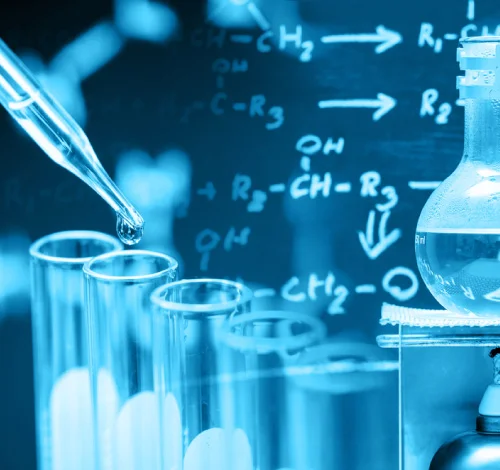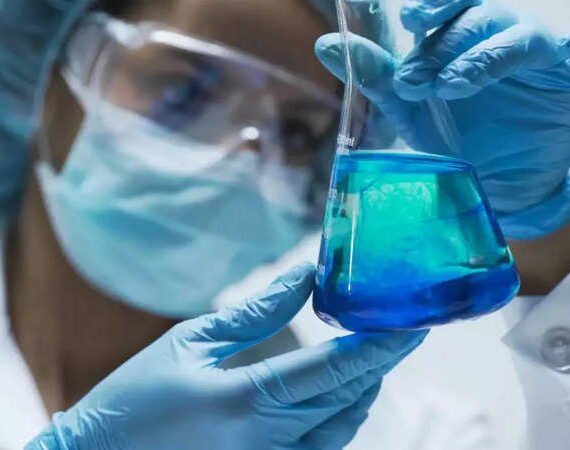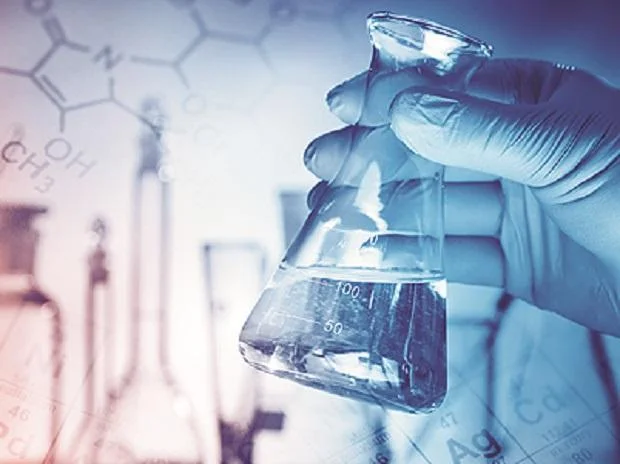GLYCOL – HEAT TRANSFER FLUID
Glycols – either ethylene glycol or propylene glycol are very popular heat transfer fluid for cooling and heating applications.
Glycols – either ethylene glycol or propylene glycol are very popular heat transfer fluid for cooling and heating applications.
Inhibited Glycol is a heat transfer fluid that is designed for applications where environmental conditions require low freezing points while retaining the good transfer efficacy of water. Glycols help lower the freezing point of water thereby providing burst protection. Inhibited Glycols have corrosion inhibitors which protect the metal in which they circulate in. The selection of inhibitors depends on the material of composition of the equipment and toxicity of the material.
At Prime Specialty, we offer a wide range of inhibited Propylene and inhibited Ethylene glycol for commercial and industrial use. Our products can have a variety of uses while helping you make your facility’s operation more efficient and cost-effective. Inhibited propylene glycol, which is safe and nontoxic, is also used in food processing and pharmaceutical industry. Our products do not contain any Amine or Nitrites or combination, which produce Nitrosamines, a known carcinogenic.

Uninhibited Glycol (or plain Glycol) are very popular heat transfer fluid for cooling and heating applications. However, when used by themselves and without inhibitor they tend to cause damage to the metals in the equipment. Such corrosion can cause severe damage to your system leading to unexpected shutdowns, high maintenance costs and reduced life of the system.
Uninhibited Glycols not only corrode your system but also accelerate the problem. Glycol degradation occurs when the glycol is exposed to high temperatures, particularly in the presence of oxygen or oxidizing agents. This degradation results in the formation of organic acids, specifically, glycolic, formic and acetic acids. As degradation progresses and the pH of the fluid decreases, the system eventually becomes acidic and accelerates the corrosion of many metals. Without the presence of corrosion inhibitor to buffer these acids, the corrosion rate of a solution of uninhibited Glycol can be greater than that of plain water.
Our ROTO range of inhibited glycols have combination of synergistic chemicals protecting the metals in your system, which uninhibited glycol lacks. Our ROTO range of inhibited glycols will not affect plastic but will affect Aluminium (above about 150°F) and galvanized steel. The zinc in the galvanizing will react with our inhibitors and cause loss of the zinc coating leading to localized corrosion. For Aluminium protection at higher temperatures we have different grade for which you can contact our sales team.


When wrong quality of water is used to dilute the glycols, it causes more solubility in water resulting into scaling of the system and thus impacting the equipment performance. Ideally, deionized water should be used for dilution. Water hardness is generally made of soluble mineral salts including sodium, calcium and magnesium cations, attached to chlorides, carbonates and sulphate anions. The hardness originating out calcium and magnesium cations would reduce heat transfer through scaling on the equipment surface. In the long run it would also result in the formation of sediment and cause circulation problems. Besides all this, high concentrations of corrosive ions, such as chloride and sulphate, will corrode the metal surface.
Glycol degradation occurs when the glycol is exposed to high temperatures, particularly in the presence of oxygen or oxidizing agents. This degradation results in the formation of organic acids, specifically, glycolic, formic and acetic acids. As degradation progresses and the pH of the fluid decreases, the system eventually becomes acidic and accelerates the corrosion of many metals.